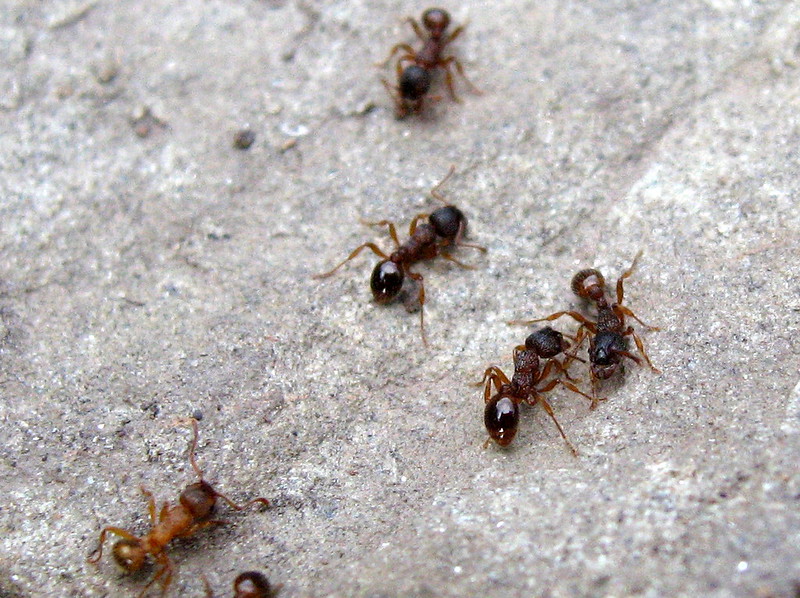If you’ve ever been caught in a traffic jam, you know how frustrating it can be.
The people who plan out roads and highways generally try to minimize the headaches for drivers, but it’s tricky.
Sometimes they’re limited by geography or budget; other times they build something that’s perfect at the time, but then people’s needs change later on.
Fortunately we might be able to find some transportation inspiration from another creature that moves around in large numbers: the ant.
A team of biologists at UCLA studied how ants seem to build their nests based on the way they gather and move food around.
Some species send individual ants out for food, and in some cases the ant brings back some of the food and gets others to go back to the source to get more.
Others leave a trail to the food using pheromones, and certain kinds of ants just create a living trail where there’s always somebody going to or from the food until it’s used up.
It turns out that the ant nests are built to accommodate whichever methods they use.
For the ants that gather food in larger numbers, they have bigger entrance chambers to their nests so that the group can get in and out more easily.
Also, the ants that do more group work build more pathways between their nest’s individual chambers than the ants that work solo.
The scientists said that if humans wanted to build their transportation networks more like ants, they might have more specialized pathways, like, for example, special roads or lanes that are just used to get trucks to and from ports or warehouses.
But the study found that even the ants have a limit on just how specialized their nests can get: building too many options can create clogs and also make the nest too heavy.
It’s true with humans and ants alike: you need a balance.
A dude in Germany has built a trash train.
As Jalopnik reported, the system essentially puts all the waste bins on little carts that are set along a track.
When garbage day arrives, the inventor can use a remote control to send all the bins to the curb.
And after the bins are emptied, he can use the control to send them back to the house.
If the bins got off their track, would that be a clean getaway?
Could insights from ants help people build better transportation networks? (University of California)
Middle-Aged Men Only Want One Thing, And It’s Disgusting (Jalopnik)
Hail ants? Nah, but definitely hail our Patreon backers for supporting the show

